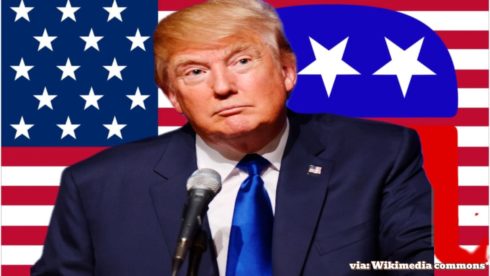A top foreign policy adviser to Republican presidential candidate Donald Trump has called for the United States to impose sanctions on International Criminal Court (ICC) officials. This recommendation follows the ICC’s decision to issue arrest warrants for Israeli Prime Minister Benjamin Netanyahu and Defense Minister Yoav Gallant. Robert O’Brien, who served as Trump’s fourth and final national security adviser, made these comments during an interview with Reuters in Jerusalem after meeting with Netanyahu and other Israeli officials.
O’Brien criticized the ICC’s actions, labeling the decision as “irrational” and argued that the U.S. should respond by sanctioning the bank accounts and travel of ICC prosecutors and judges involved. He emphasized the need for the U.S. to demonstrate strength by imposing visa restrictions and other punitive measures against these officials. O’Brien’s visit to Israel, alongside former U.S. Ambassador to the UAE John Rakolta and former Ambassador to Switzerland Ed McMullen, underscores the ongoing support from Trump’s allies despite the strained relations between Israel and the Biden administration over the Gaza conflict.
High-Level Meetings Focused on Israel’s Security
During their visit, O’Brien and his delegation met with several key Israeli figures, including President Isaac Herzog, war cabinet minister Benny Gantz, and Defense Minister Yoav Gallant. The discussions primarily revolved around the ICC’s arrest warrants and the broader security situation in Israel. O’Brien highlighted the urgency of addressing the threats posed by Hamas, particularly in the aftermath of the October 7 attack orchestrated by Yahya Sinwar, which prompted Israel’s military response in Gaza.
The delegation’s meetings did not extend to Palestinian leaders, focusing solely on Israeli perspectives and concerns. O’Brien shared with Netanyahu and other officials his view that a swift and decisive action was necessary to defeat Hamas, especially in Rafah. He stressed the importance of rescuing hostages held by Hamas and capturing Sinwar as crucial steps towards achieving security and stability in the region.
Delegation’s Support Amid Political Tensions
The visit of O’Brien and his colleagues was a notable instance of Trump allies engaging with foreign leaders, highlighting the continued influence of Trump’s network in international politics. The delegation’s trip, reported first by Reuters, comes at a time when Trump is leading in polls against his November 5 election rival, President Joe Biden, despite facing multiple criminal trials. The group made it clear that their visit was not on Trump’s direct request, although they maintain regular communication with him.
In addition to political meetings, the delegation visited areas impacted by the Hamas attacks, including the Nova Music Festival site and the Nir Oz kibbutz near Gaza. These visits were intended to demonstrate solidarity with the Israeli victims and to underscore the gravity of the security threats faced by Israel. This trip underscores the ongoing diplomatic and political engagements by Trump’s advisers as they bolster ties with key international allies amidst a contentious election season in the United States.
Trump Imposed Sanctions on ICC While President
During his presidency, Donald Trump imposed sanctions on the International Criminal Court (ICC), targeting staff involved in investigations into U.S. military conduct in Afghanistan. This executive order, issued in 2020, aimed to restrict travel and freeze the assets of court officials. The decision underscored the Trump administration’s strong opposition to the ICC’s jurisdiction over U.S. personnel, reflecting a broader stance on national sovereignty and international oversight.
Trump’s sanctions were part of a broader policy to shield American and allied forces from international legal scrutiny. His administration argued that the ICC’s actions threatened the sovereignty of nations that did not recognize its authority, including Israel. Although these sanctions were reversed early in Joe Biden’s presidency, the debate over the ICC’s role and jurisdiction continues to be a contentious issue in U.S. foreign policy.
Rising Tensions in Gaza and U.S. Political Reactions
The ongoing conflict in Gaza has resulted in severe casualties, with over 35,000 Palestinians reported killed since the conflict escalated following a Hamas attack on Israel on October 7, which resulted in 1,200 Israeli deaths and the abduction of 253 individuals. Amidst this backdrop, ICC prosecutor Karim Khan has requested warrants for several high-profile leaders, including Israeli Prime Minister Benjamin Netanyahu and Defense Minister Benny Gantz, alleging war crimes.
This development has sparked a renewed push by Republican leaders in the U.S. Congress to reimpose sanctions on ICC officials if they investigate American or allied nations’ leaders. Former Trump adviser Robert O’Brien has publicly supported this legislative effort, indicating a potential policy reversal if Trump were to return to office. The bipartisan support for such measures remains uncertain, though historically, both parties have expressed skepticism toward the ICC’s jurisdiction.
The Biden administration has shown a more nuanced approach, sometimes critiquing Israel’s military strategies, particularly regarding civilian protection. Secretary of State Antony Blinken highlighted concerns about Israel’s actions in Rafah, reflecting a divergence from the previous administration’s more unequivocal support for Israeli military operations. This complex interplay of international law, U.S. foreign policy, and Middle Eastern geopolitics continues to evolve as the situation in Gaza unfolds














